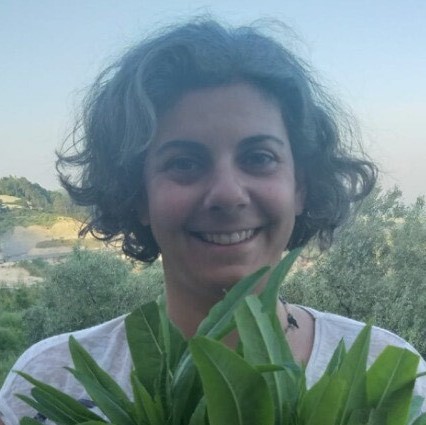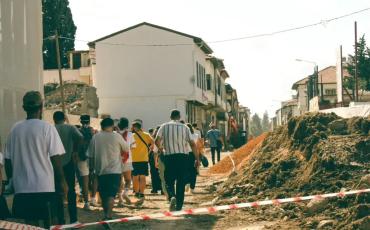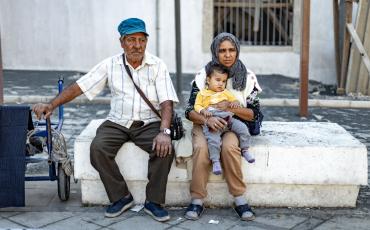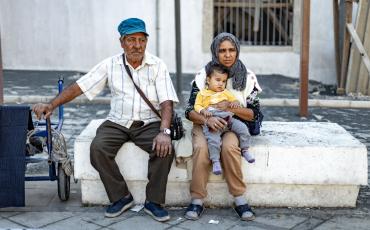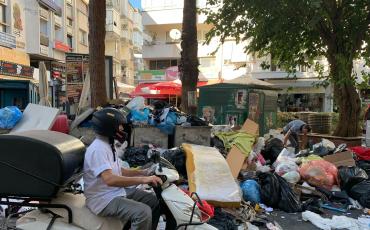Following the appointment of Melih Bulu as rector of Boğaziçi University in Istanbul, protests have erupted on campus. Bediz Yılmaz sheds light on the ongoing fight for academic freedom in which the current events represent a decisive moment.
The appointment of the new rector of Boğaziçi University by President Erdoğan is the latest but probably not the last ring in the long chain of anti-democratic procedures ruling the country in general, and the higher education in particular.
Since the 1980 military coup and the establishment of the Council of Higher Education in 1981, the appointment procedure for university rectors has never been an example of democratic practice. Blamed for being the institutions nurturing the rise of social clashes and so called “dangerous libertarian and socialist ideas”, universities lost all their autonomy and the Council was the body which guaranteed their alignment with the regime.
It functioned as the authority presiding all the decisions related to the universities including the appointment of the rectors. Among many other duties, the Council was inter alia responsible of determining the curricula, the subjects and juries of doctoral theses, approbation of academic promotions and the yearly budgets. It was therefore very influential and effective in “disciplining” the universities, which ought to be the beacons of autonomy and freedom in a society. The existence of the Council was first justified by the need to monitor the universities and prevent any divergences towards the so called “dangerous flourishing of radical ideas”. The official premise was that the Council would be above all political identities in the framework of post-1980’s coup.
But the reality was different: each government designed the office according to its own needs, creating favourite and marginalised universities, awarded and penalised ones. Monitoring the universities remained a major tool for controlling and tailoring the youth, which various governments wanted to be loyal and compliant. To summarise: autonomous and democratic universities were quite inexistent in Turkey, especially after the 1980s, with a few exceptions.
The AKP’s false promises
Recep Tayyip Erdoğan came to power in 2002 with a discourse of being the oppressed victim of the Kemalist Republican regime and being the representative of this regime’s “others”. The AKP government claimed to be more democratic and to hold an open stance towards all the former marginalized. At first it appeared to stick to its promises: Particularly during the 1990s, as the EU membership seemed to be just a matter of time, Turkey implemented many reforms towards democratisation. Universities enjoyed some degree of autonomy, although this never meant total freedom of thought or expression, nor a real election procedure. To be more precise, the election of rectors was abolished in 1981 and reinstated in 1992. But even then, only the academic staff with a permanent contract, i.e. full professors and associate professors could vote. With their votes they nominated three candidates from which the President of the Republic would then choose the new rector.
The state of emergency and its aftermath
This procedure was in place until 2016, the year of the failed coup attempt which was followed by the government’s declaration of the state of emergency. This state of emergency has since then worked as a perfect alibi for the government to issue undemocratic presidential decree-laws for literally any matter. In October 2016, a decree-law regulating the election or rather appointment procedure of the rectors is issued. It is very simple: with all decrees passed since the coup attempt, the President became the ultimate decision-maker. The Council of Higher Education makes a list of three candidates and the President appoints one of them.
The state of emergency was lifted in 2018, but its spirit still reigns today, four years after the coup attempt. Opposition of any kind is severely suppressed, to put it very briefly. The period since the overthrowing of the 2016 coup attempt, is marked by an AKP that rules by excess authoritarianism which destroys the remaining pockets of autonomy and scientific values within the universities. In this respect, the appointment of the new rector at Boğaziçi University is in line with the repression against the Academics of Peace since early 2016. The group published a petition entitled “We will not be a party to this crime”[1] on January 11, 2016 and those who signed it have since faced state persecution, occupational and departure bans and imprisonment.
The fight for cultural hegemony
The appointment of a pro-government rector to Boğaziçi University, which is not only one of the most prestigious universities of Turkey but also one of the few which could keep their autonomous stance vis-a-vis governments and the Council’s impositions until today, is therefore an affront to academic freedom. This move can be considered as another attempt of the AKP that is in power for more than 20 years to finally gain even further cultural hegemony in society. In this sense, it is an attempt to capture the symbolic power of which they were not yet able to take full possession. Boğaziçi’s rector arrived to his position without the consent of the universities stakeholders, and his arrival resembled the conquest of Constantinople 568 years ago by Ottoman Sultan Mehmed II. A never-ending conquest, seemingly.
[1] The petition spoke against the extreme violence used by Turkish authorities in the Kurdish regions of the country at the time.


